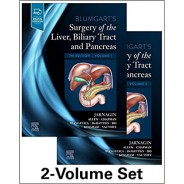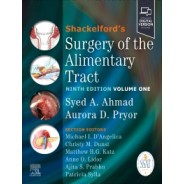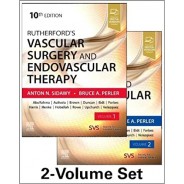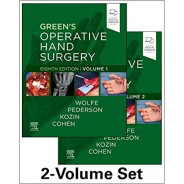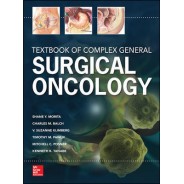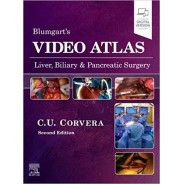Sipariş listesinde ürün yok
Ürün başarıyla alışveriş sepetinize eklendi
Sepetinizde 0 ürün bulunmaktadır. Sepetinizde 1 ürün bulunmaktadır.
Genel Cerrahi
- Tıp Kitapları
- Acil Tıp
- Adli Tıp ve kriminoloji
- Aile Hekimliği
- Alerji ve İmmünoloji
- Anatomi
- Anesteziyoloji ve Ağrı
- Biyoloji ve Genetik
- Biyomedikal Mühendisliği
- Biyokimya
- Çocuk Cerrahisi
- Çocuk Sağlığı ve Hastalıkları
- Çocuk ve Ergen Psikiyatrisi
- Dahiliye
- Dermatoloji
- Endokrinoloji
- Farmakoloji
- Fiziksel Tıp ve Rehabilitasyon
- Fizyoterapi, Rehabilitasyon ve Spor Hekimliği
- Fizyoloji
- Gastroenteroloji
- Geleneksel ve Tamamlayıcı Tıp
- Genel Cerrahi
- Geriatri
- Göğüs Hastalıkları
- Kalp Damar Cerrahisi
- Göz Hastalıkları
- Halk Sağlığı
- Hematoloji
- Histoloji ve Embriyoloji
- İnfeksiyon Hastalıkları
- Kadın Hastalıkları ve Doğum
- Kardiyoloji
- Kulak Burun Boğaz Hastalıkları
- Mikrobiyoloji immunoloji
- Nöroşirürji
- Nefroloji
- Nöroloji
- Nükleer Tıp
- Onkoloji
- Ortopedi ve Travmatoloji
- Patoloji
- Plastik Cerrahi
- Sağlıklı Yaşıyoruz
- Spor Hekimliği
- Psikiyatri
- Radyasyon Onkoloji
- Radyoloji
- Romatoloji
- Tıp Tarihi ve Tıp Etiği
- Tıbbı İstatistik Araştırma
- Tıp ve Sağlık Hukuku
- Tıbbi Laboratuvar Deney Bilimi
- USMLE & Board Review
- Üroloji
- Yoğun Bakım
- Göğüs Cerrahisi
- Uyku Tıbbı
- Diş Hekimliği Kitapları
- Eczacılık Kitapları
- Beslenme ve Diyet Kitapları
- Veteriner Hekimlik
- DUS Kitapları
- DUS Akademi Konu Kitapları Serisi
- DUS için Açıklamalı Deneme Sınavları Serisi
- DUS Spot Bilgiler Serisi
- Miadent Konu Kitapları Serisi
- Miadent Soru Kitapları Serisi
- DUS Çıkmış Soru Kitapları
- DUSDATA Şampiyonların Notu
- DUS Review Serisi
- DUSDATAMAX Soru Kitapları Serisi
- DUS Akademi Soru Kitapları Serisi
- Diğer Kitapları Serisi
- TUS Kitapları
- Çıkmış TUS Soru Kitapları
- 41 Deneme Serisi
- MEDOTOMY Serisi
- Tusmer
- Klinisyen Konu Kitapları Serisi
- Optimum Serisi
- Premium Serisi
- PRETUS Deneme Sınavları Serisi
- ProspekTUS Serisi
- Klinisyen Soru Kitapları Serisi
- Tusdata Ders Notları
- Tıbbi İngilizce
- Vaka Soruları Serisi
- Tüm Tus Soruları
- Hızlı Tekrar Serisi
- UTS Serisi
- KAMP ÖZEL NOTLARI
- Meditus Serisi
- YDUS Kitapları
- Hemşirelik ve Ebelik kitapları
- HEMŞİRELİK / halk sağlığı
- HEMŞİRELİK / Hemşirelik Esasları
- HEMŞİRELİK / İç Hastalıkları
- HEMŞİRELİK / Cerrahi Hastalıkları
- HEMŞİRELİK / Kadın hastalıkları ve doğum Ebelik
- HEMŞİRELİK / Ruh Sağlığı ve Hastalıkları
- HEMŞİRELİK / Hemşirelikte Eğitim
- HEMŞİRELİK / Çocuk Sağlığı ve Hastalıkları
- HEMŞİRELİK / Acil tıp hemşireliği
- SAĞLIK BİLİMLERİ
- Çocuk Gelişimi
- Sağlık Yöneticiliği
- Optisyenlik
- Odyoloji
- Saç Bakımı ve Güzellik Hizmetleri
- Anestezi Teknikerliği
- Tıbbi Dökümantasyon ve Sekreterlik
- Tıbbi Laboratuvar Teknisyenliği
- İş Sağlığı ve Güvenliği
- Ergoterapi
- Ağız ve Diş Sağlığı Teknisyenliği
- Dil ve Konuşma Terapisi
- İlk ve Acil Yardım Teknikeri (Paramedik)
- Radyoloji Teknisyenliği
- EĞİTİM BİLİMLERİ
- Değerler Eğitimi
- Eğitim Programları ve Öğretim
- Eğitim Psikolojisi
- Eğitim Yönetimi ve Denetimi
- Eğitimde Drama
- Eğitim Temelleri
- Eğitim Teknolojileri
- Okul Öncesi Eğitim
- Ortaokul Öğretmenliği
- Öğretmenlik Eğitimi Bölümleri
- Ölçme ve Değerlendirme
- Özel Eğitim
- Psikolojik Danışmanlık ve Rehberlik
- Sınıf Öğretmenliği
- Sınıf Yönetimi Etkili Öğretim
- Yabancı Dil Eğitimi
- İLETİŞİM
- İŞLETME
- İKTİSAT / EKONOMİ / MALİYE
- MİMARLIK - SANAT
- BİLİM TEKNİK
- MÜHENDİSLİK - TEKNİK
- FEN BİLİMLERİ
- ÇOCUK VE GENÇLİK KİTAPLARI
- BEŞERİ/SOSYAL BİLİMLER
- ÇEVRE ve YER BİLİMLERİ
- GIDA TARIM ve HAYVANCILIK
- BİYOMEDİKAL MÜHENDİSLİĞİ
- SEYAHAT TURİZM
- SOSYAL ÇALIŞMALAR
- SPOR BİLİMLERİ
- YÖNETİM - SİYASET - ULUSLARARASI İLİŞKİLER
- SINAVLAR HAZIRLIK
- ÖNERİLEN ÜRÜNLER
- Çok Satan Romanlar
- E-Kitaplar
- AYBAK
- Kırtasiye
- Yabancı Dil Eğitimi
 Daha büyük görüntüle
Daha büyük görüntüle Current Surgical Therapy, 14th Edition
9780323796835
BU KİTAP İÇİN ÖN SİPARİŞ ALINMAKTADIR. TESLİM SÜRESİ 6 - 8 HAFTADIR. BİLGİ ALMAK İÇİN MAĞAZAMIZI ARAYINIZ
9 571,21 TL
7 656,97 TL
-20%
KDV Hariç: 7 656,97 TL
- Yorum Yaz
An ideal resource for written, oral, and recertifying board study, as well as an excellent reference for everyday clinical practice, Current Surgical Therapy, 13th Edition, provides trusted, authoritative advice on today's best treatment and management options for general surgery. Residents and practitioners alike appreciate the consistent, highly formatted approach to each topic, as well as the practical, hands-on advice on selecting and implementing current surgical approaches from today’s preeminent general surgeons.
- Provides thoroughly updated information throughout all 263 chapters, including focused revisions to the most in-demand topics such as management of rectal cancer, inguinal hernia, and colon cancer.
- Presents each topic using the same easy-to-follow format: disease presentation, pathophysiology, diagnostics, and surgical therapy.
- Includes seven all-new chapters: REBOA in Resuscitation of the Trauma Patient, Treatment of Varicose Veins, Management of Infected Grafts, Radiation for Pancreatic Malignancies, Pneumatosis Intestinalis, Proper Use of Cholecystostomy Tubes, and Pelvic Fractures.
- Integrates all minimally invasive surgical techniques into relevant chapters where they are now standard management.
- Discusses which approach to take, how to avoid or minimize complications, and what outcomes to expect.
- Features full-color images throughout, helping you visualize key steps in each procedure.
- Helps you achieve better outcomes and ensure faster recovery times for your patients.
- Provides a quick, efficient review prior to surgery and when preparing for surgical boards and ABSITEs.
- Enhanced eBook version included with purchase, which allows you to access all of the text, figures, and references from the book on a variety of devices
1 Esophageal Function Tests
2 The Surgical Management of Gastroesophageal Reflux Disease
3 New Approaches to Gastroesophageal Reflux Disease (LINX)
4 The Management of Barrett’s Esophagus
5 The Endoscopic Treatment of Barrett’s Esophagus
6 The Management of Paraesophageal Hiatal Hernia
7 Management of Zenker’s Diverticulum
8 Achalasia of the Esophagus
9 Management of Disorders of Esophageal Motility
10 The Management of Esophageal Cancer
11 Multimodality Therapy in Esophageal Cancer
12 The Use of Esophageal Stents
13 The Management of Esophageal Perforation
14 Benign Gastric Ulcer
15 The Management of Duodenal Ulcers
16 Management of Zollinger-Ellison Syndrome
17 The Management of the Mallory-Weiss Syndrome
18 The Management of Gastric Adenocarcinoma
19 Familial Gastric Cancer
20 Management of Gastrointestinal Stromal Tumors
21 Gastrointestinal Tubes for Feeding and Decompression
22 The Management of Morbid Obesity
23 The Management of Small Bowel Obstruction
24 The Management of Crohn's Disease of the Small Bowel
25 The Use of Strictureplasty in Crohn’s Disease
26 The Management of Small Bowel Tumors
27 Management of Diverticulosis of the Small Bowel
28 Diagnosis and Management of Motility Disorders of the Stomach and Small Bowel in the Current Era
29 The Management of Intestinal Failure
30 The Management of Enterocutaneous Fistulas
31 Management of Radiation-induced Injury to the Small and Large Bowel
32 Preoperative Bowel Preparation: Is It Necessary?
33 Diverticular Disease of the Colon
34 Management of Chronic Ulcerative Colitis
35 The Management of Toxic Megacolon
36 Surgical Management of Crohn’s Colitis
37 Ischemic Colitis
38 Management of Clostridioides difficile Colitis
39 Management of Large Bowel Obstruction
40 Enteral stents in the treatment of colonic obstruction
41 Acute Colonic Pseudo-Obstruction (Ogilvie’s Syndrome)
42 The Management of Colonic Volvulus
43 Management of Rectal Prolapse
44 Surgical Management of Constipation
45 Surgical Management of the Polyposis Syndromes
46 Surgical Management of Colon Cancer
47 PET Scanning in the Management of Colorectal Cancer
48 Neoadjuvant and Adjuvant Therapy for Colorectal Cancer
49 The Management of Colon Polyps
50 The Management of Peritoneal Surface Malignancies
51 Management of Lower Gastrointestinal Bleeding
52 Appendicitis: Diagnosis and Management
53 The Management of Hemorrhoids
54 Management of Fissure-in-ano
55 The Management of Anorectal Abscess and Fistula
56 Anal Stenosis
57 Management of Pruritus Ani
58 Surgical Management of Fecal Incontinence
59 Rectovaginal Fistula
60 Anal Condyloma
61 The Management of Pilonidal Disease
62 Pneumatosis Intestinalis and the Importance for the Surgeon
63 Management of Rectal Cancer
64 The Management of Tumors of the Anal Region
65 Cystic Disease of the Liver
66 The Management of Echinococcal Cyst Disease of the Liver
67 The Management of Liver Hemangioma
68 The Management of Benign Liver Tumors
69 Management of Malignant Liver Tumors
70 Hepatic Malignancy: Resection versus Transplantation
71 Management of Colorectal Liver Metastases
72 "Ablation of Colorectal Liver Tumors "
72 Ablation of Colorectal Carcinoma Liver Metastases
73 Management of Hepatic Abscesses
74 Transarterial Therapies for Primary and Metastatic Liver Tumors
75 Portal Hypertension: The Role of Shunting Procedures
76 The Role of Liver Transplantation in Portal Hypertension
77 Endoscopic Therapy for Esophageal Variceal Hemorrhage
78 Transjugular Intrahepatic Portosystemic Shunt
79 Management of Refractory Ascites
80 The Management of Hepatic Encephalopathy
81 The Management of Budd Chiari Syndrome
82 The Management of Asymptomatic (Silent) Gallstones
83 Management of Biliary Dyskinesia
84 The Management of Acute Cholecystitis
85 Proper Use of Cholecystostomy Tubes
86 The Management of Common Bile Duct Stones
87 The Management of Acute Cholangitis
88 The Management of Benign Biliary Strictures
89 Management of Cystic Disorders of the Bile Ducts
90 Management of Primary Sclerosing Cholangitis
91 The Management of Intrahepatic, Hilar, and Distal Cholangiocarcinomas
92 Biomarkers for Hepatobiliary Tumors
93 The Surgical Management of Gallbladder Cancer
94 Management of Gallstone Ileus
95 Transhepatic Interventions for Obstructive Jaundice
96 Obstructive Jaundice: Endoscopic Therapy
97 The Management of Acute Necrotizing Pancreatitis
98 Gallstone Pancreatitis
99 Pancreas Divisum and Other Variants of Dominant Dorsal Duct Anatomy
100 Diagnosis and Management of Autoimmune Pancreatitis
101 The Management of Pancreatic Necrosis
102 The Management of Pancreatic Pseudocyst
103 Pancreatic Ductal Disruptions Leading to Pancreatic Fistula, Pancreatic Ascites, or Pancreatic Pleural Effusions
104 The Management of Chronic Pancreatitis
105 Genetic Testing and High Risk Pancreatic Cancer Screening
106 The Management Of Periampullary Cancer
107 Management of Complications After the Whipple Procedure
108 Vascular Reconstruction During the Whipple operation
109 Palliative Therapy for Pancreatic Cancer
110 Neoadjuvant and Adjuvant Therapy of Pancreatic Cancer
111 Rare and Unusual Pancreatic Tumors
112 Intraductal Papillary Mucinous Neoplasms (IPMN) of the Pancreas
113 Pancreatic Neuroendocrine Tumors of the Pancreas Excluding Gastrinoma
114 Intraoperative Radiation for Pancreatic Cancer
115 Pancreas Transplantation
116 Total Pancreatectomy and Islet Autotransplantation for Chronic Pancreatitis
117 Splenectomy for Hematologic Disorders
118 The Management of Cysts, Tumors, and Abscesses of the Spleen
119 Management of Inguinal Hernia
120 The Management of Recurrent Inguinal Hernia
121 Incisional, Epigastric and Umbilical Hernias, Part 1
122 Incisional, Epigastric and Umbilical Hernias, Part 2
123 The Management of Spigelian, Obturator, and Lumbar Hernias
124 Athletic Pubalgia: The “Sports Hernia”
125 Abdominal Wall Reconstruction
126 Loss of Domain in Hernia Repair
127 Use of Various Meshes in Hernia Repair
128 Benign Breast Disease
129 Screening for Breast Cancer
130 The Role of Stereotactic Breast Biopsy in the Management of Breast Disease
131 Molecular Targets in Breast Cancer
132 Breast Cancer: Surgical Therapy
133 Management of Breast Cancer During Pregnancy
134 Ablative Techniques in the Treatment of Benign and Malignant Breast Disease
135 Lymphatic Mapping and Sentinel Lymph Node Biopsy
136 Surgical Management of the Axilla
137 Inflammatory Breast Cancer
138 Ductal and Lobular Carcinoma In Situ of the Breast
139 Advances in Neoadjuvant and Adjuvant Therapy for Breast Cancer
140 Management of Recurrent and Metastatic Breast Cancer
141 The Management of Male Breast Cancer
142 A Surgeon’s Practical Guide to Breast Imaging
143 Genetic Counseling and Testing
144 Contralateral Prophylactic Mastectomy
145 Margins: How to and How Big?
146 Breast Reconstruction Following Mastectomy: Indications, Techniques and Results, Part 1
147 Breast Reconstruction Following Mastectomy: Indications, Techniques and Results, Part 2
148 Breast Surgery Associated with Anoplastic Large Cell Lymphoma
149 Adrenal Incidentaloma
150 The Management of Adrenal Cortical Tumors
151 The Management of Pheochromocytoma
152 Management of Thyroid Nodules
153 Nontoxic Goiter
154 The Management of Thyroiditis
155 The Management of Hyperthyroidism
156 Surgical Management of Thyroid Cancer
157 Primary Hyperparathyroidism
158 Evaluation and Management of Persistent or Recurrent Primary Hyperparathyroidism
159 The Surgical Management of Secondary and Tertiary Hyperparathyroidism
160 Metabolic Changes Following Bariatric Surgery
161 Glycemic Control and Cardiovascular Risk Reduction After Bariatric Surgery
162 Non-Melanoma Skin Cancers
163 The Management of Cutaneous Melanoma
164 The Management of Soft Tissue Sarcoma
165 The Management of Solitary Neck Mass
166 Hand Infections
167 Nerve Injury and Repair
168 Necrotizing Skin and Soft Tissue Infections
169 Management of Spontaneous and Secondary Pneumothorax
170 The Management of Primary Chest Wall Tumors
171 Mediastinal Masses
172 Primary Tumors of the Thymus
173 Management of Tracheal Stenosis
174 The Management of Acquired Esophageal Respiratory Tract Fistula
175 Repair of Pectus Excavatum
176 Open Repair of Abdominal Aortic Aneurysms
177 Endovascular Treatment of Abdominal Aortic Aneurysm
178 The Management of Ruptured Abdominal Aortic Aneurysms
179 Abdominal Aortic Aneurysm and Unexpected Abdominal Pathology
180 The Management of Descending Thoracic and Thoracoabdominal Aortic Aneurysms
181 Management of Acute Aortic Dissection
182 Carotid Endarterectomy
183 The Management of Recurrent Carotid Artery Stenosis
184 Balloon Angioplasty and Stents in Carotid Artery Occlusive Disease
185 The Management of Aneurysms of the Extracranial Carotid and Vertebral Arteries
186 Brachiocephalic Reconstruction
187 Upper Extremity Arterial Occlusive Disease
188 Aortoiliac Occlusive Disease
189 Femoropopliteal Occlusive Disease
190 Tibioperoneal Arterial Occlusive Disease
191 Popliteal and Femoral Artery Aneurysm
192 The Treatment of Claudication
193 Pseudoaneurysms and Arteriovenous Fistulas
194 Management of Peripheral Arterial Thromboembolism
195 Acute Peripheral Arterial and Bypass Graft Occlusion: Thrombolysis and Thrombectomy
196 The Management of Infected Grafts
197 Atherosclerotic Renal Artery Stenosis
198 Raynaud’s Phenomenon
199 Thoracic Outlet Syndrome
200 The Diabetic Foot
201 Gangrene of the Foot
202 Buerger’s Disease (Thromboangiitis Obliterans)
203 Takayasu's Arteritis
204 Acute Mesenteric Ischemia
205 Chronic Mesenteric Ischemia
206 Hemodialysis Access Surgery
207 Venous Thromboembolism: Prevention, Diagnosis and Treatment
208 Vena Cava Filters
209 The Treatment of Varicose Veins
210 Lymphedema
211 Lower Extremity Amputation
212 Initial Assessment and Resuscitation of the Trauma Patient
213 Pre-Hospital Management of the Trauma Patient
214 The Use of REBOA in Resuscitation of the Trauma Patient
215 Airway Management in the Trauma Patient
216 The Surgeon's Use of Ultrasound in the Trauma and Critical Care Settings
217 Emergency Department (ED) Resuscitative Thoracotomy
218 The Management of Traumatic Brain Injury
219 Chest Wall Trauma, Hemothorax, and Pneumothorax
220 Management of Pulmonary Parenchymal Injury
221 Blunt Abdominal Trauma
222 Penetrating Abdominal Trauma
223 The Management of Diaphragmatic Injuries
224 Management of Traumatic Liver Injury
225 Pancreatic and Duodenal Injuries
226 Injuries to Small and Large Bowel
227 Current Management of Rectal Injury
228 The Injured Spleen
229 Retroperitoneal Injuries: Kidney and Ureter
230 Tenets of Damage Control
231 Early Management of Pelvic Ring Disruption
232 Urologic Complications of Pelvic Fracture
233 Spine and Spinal Cord Injuries
234 Evaluation and Management of Facial Injuries
235 Penetrating Neck Trauma
236 Blunt Cardiac Injury
237 Abdominal Compartment Syndrome and Management of the Open Abdomen
238 Coagulation Issues and the Trauma Patient, Part 1
239 Coagulation Issues and the Trauma Patient, Part 2
240 The Abdomen That Will Not Close
241 Management of Vascular Injuries
242 Endovascular Management of Vascular Injuries
243 Management of Extremity Compartment Syndrome
244 Trauma and Emergency Care: Burn Wound Management
245 Medical Management of the Burn Patient
246 The Management of Frostbite, Hypothermia, and Cold Injuries
247 Electrical Injury and Lightning Injuries
248 ERAS Protocols for General Surgery
249 Fluid and Electrolyte Therapy
250 Common Pediatric Surgical Emergencies
251 Surgery in the Elderly and the Frail
252 Perioperative Optimization
253 Is Nasogastric Tube Necessary After Alimentary Tract Surgery?
254 Surgical Site Infections
255 The Management of Intra-Abdominal Infections
256 Epidemiology, Prevention, and Management of Occupational Exposure to Bloodborne Infections
257 Antifungal Therapy in the Surgical Patient
258 The Use of Opioids in the Postoperative Period
259 Management of Postoperative Delirium
260 Management of the COVID-19 Patient
261 Surgical Palliative Care
262 Cardiovascular Pharmacology
263 Glucose Control in the Postoperative Period
264 Postoperative Respiratory Failure
265 Ventilator-Associated Pneumonia
265 Acid-Base Problems
266 Extracorporeal Membrane Oxygenation For Respiratory Failure in Adults
267 Tracheostomy
268 Acute Kidney Injury in the Injured and Critically Ill
269 Fluids and Electrolytes and Acid-Base Problems
270 Catheter Sepsis in the Intensive Care Unit
271 The Septic Response and Management
272 Multiple Organ Dysfunction and Failure
273 Antibiotics for Critically Ill Patients
274 Endocrine Changes in Critical Illness
275 Nutrition Therapy in the Critically Ill Surgical Patient
276 Coagulopathy In The Critically Ill Patient
277 Post-Intensive Care Syndrome (PICS)
278 The American Board of Surgery Certifying Exam (CE) (The Oral Boards)
| ISBN | 9780323796835 |
| Basım Yılı | 2023 |
| Basım Sayısı | 14th Edition |
| Sayfa Sayısı | 1552 |
| Kitap Dili | ingilizce |
| Yazar(lar) | John L. Cameron, |





